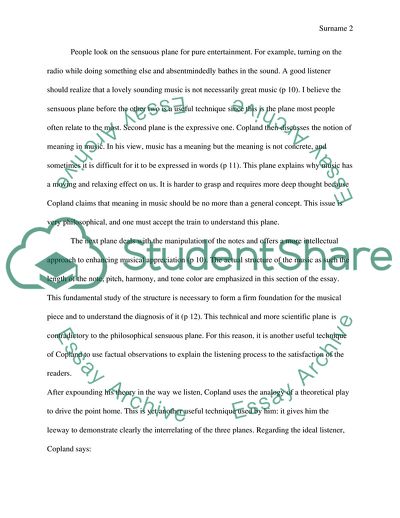Cite this document
(How We Listen by Aaron Copland Article Example | Topics and Well Written Essays - 500 words, n.d.)
How We Listen by Aaron Copland Article Example | Topics and Well Written Essays - 500 words. Retrieved from https://studentshare.org/music/1859916-how-we-listen-by-aaron-copland
How We Listen by Aaron Copland Article Example | Topics and Well Written Essays - 500 words. Retrieved from https://studentshare.org/music/1859916-how-we-listen-by-aaron-copland
(How We Listen by Aaron Copland Article Example | Topics and Well Written Essays - 500 Words)
How We Listen by Aaron Copland Article Example | Topics and Well Written Essays - 500 Words. https://studentshare.org/music/1859916-how-we-listen-by-aaron-copland.
How We Listen by Aaron Copland Article Example | Topics and Well Written Essays - 500 Words. https://studentshare.org/music/1859916-how-we-listen-by-aaron-copland.
“How We Listen by Aaron Copland Article Example | Topics and Well Written Essays - 500 Words”. https://studentshare.org/music/1859916-how-we-listen-by-aaron-copland.


